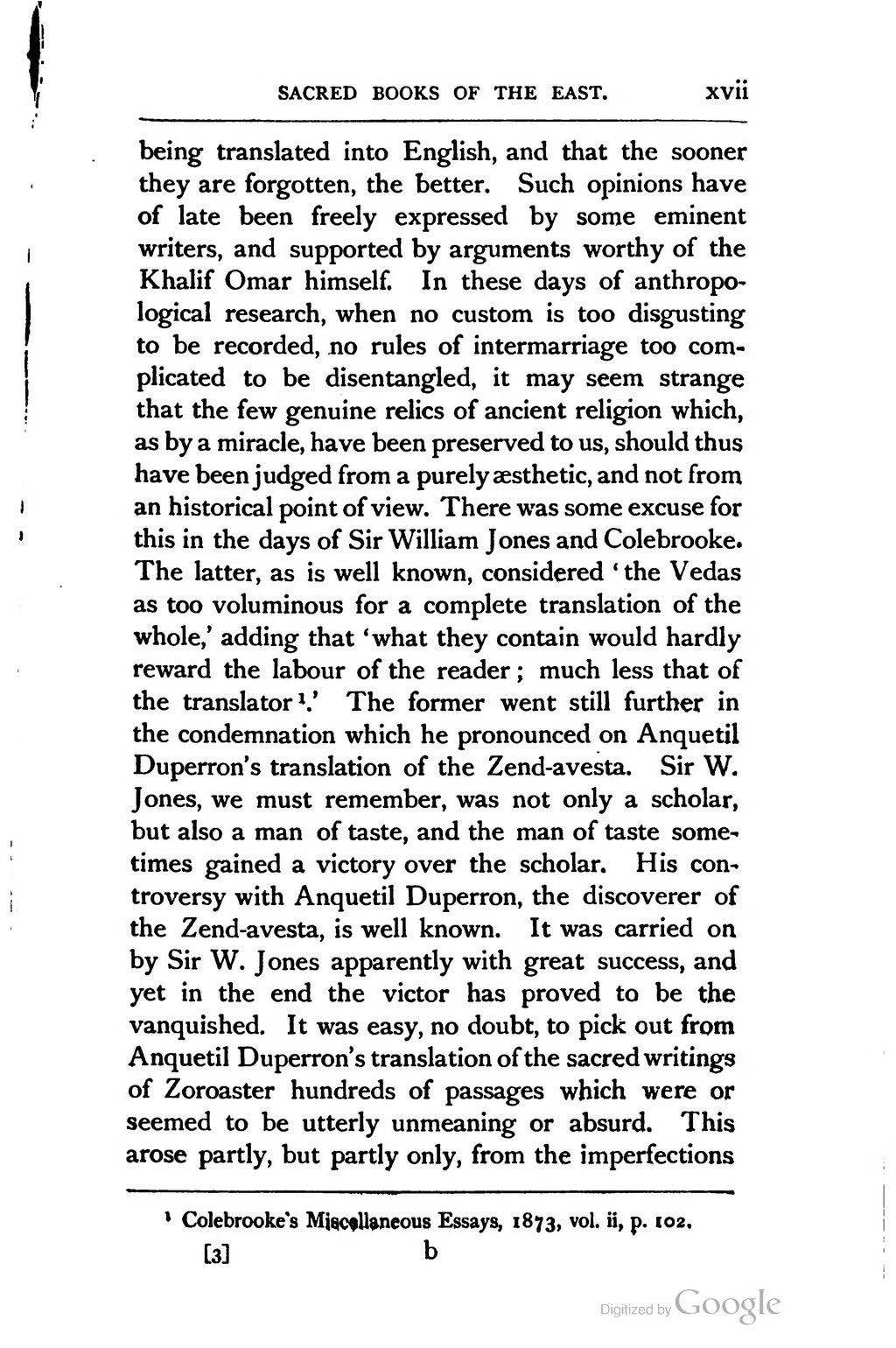being translated into English, and that the sooner they are forgotten, the better. Such opinions have of late been freely expressed by some eminent writers, and supported by arguments worthy of the Khalif Omar himself. In these days of anthropological research, when no custom is too disgusting to be recorded, no rules of intermarriage too complicated to be disentangled, it may seem strange that the few genuine relics of ancient religion which, as by a miracle, have been preserved to us, should thus have been judged from a purely aesthetic, and not from an historical point of view. There was some excuse for this in the days of Sir William Jones and Colebrooke. The latter, as is well known, considered "the Vedas as too voluminous for a complete translation of the whole," adding that "what they contain would hardly reward the labour of the reader; much less that of the translator[1]." The former went still further in the condemnation which he pronounced on Anquetil Duperron's translation of the Zend-avesta. Sir W. Jones, we must remember, was not only a scholar, but also a man of taste, and the man of taste sometimes gained a victory over the scholar. His controversy with Anquetil Duperron, the discoverer of the Zend-avesta, is well known. It was carried on by Sir W. Jones apparently with great success, and yet in the end the victor has proved to be the vanquished. It was easy, no doubt, to pick out from Anquetil Duperron's translation of the sacred writings of Zoroaster hundreds of passages which were or seemed to be utterly unmeaning or absurd. This arose partly, but partly only, from the imperfections
- ↑ Colebrooke's Miscellaneous Essays, 1873, vol. ii, p. 102.
